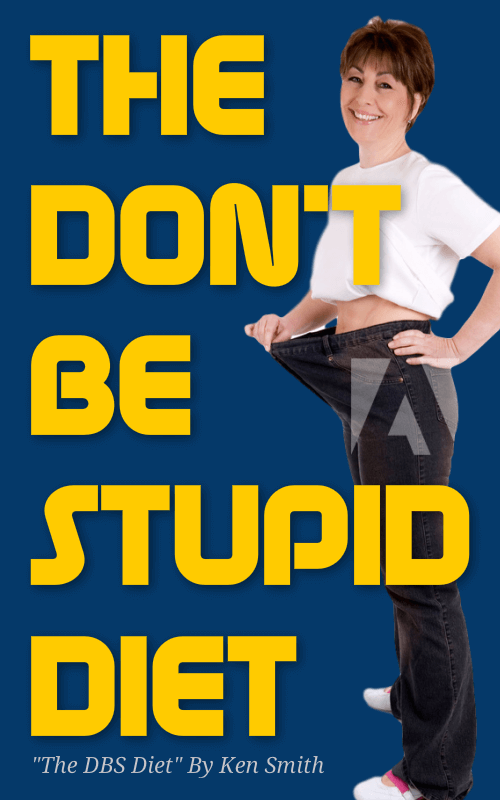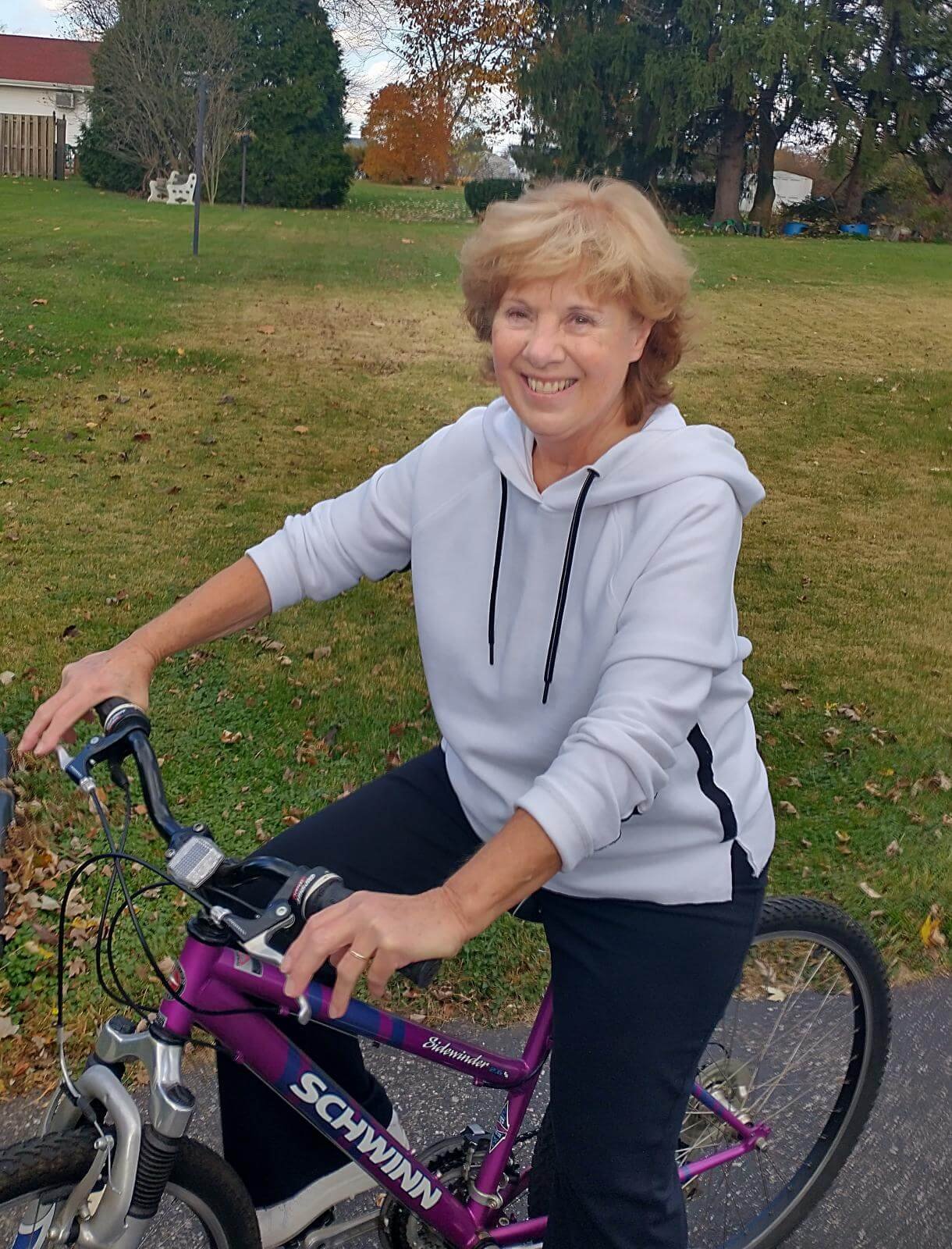What The DBS Diet Is Not...
When you read all the quick-weight-loss ads and articles,
they all claim that their product, diet or exercise program is the absolute
best. And no other product, diet or exercise program compares with
theirs. We all know how that goes.
It’s no wonder we get cynical.
The new cabbage soup diet, the latest low carbohydrate diet, the grapefruit diet, the 10-minutes-a-day exercise transformation… they all claim to be the best way to lose weight quickly.

All the while, you’re starving for nourishment… depriving your body of much-needed essential nutrients… leaving yourself more prone to illness because your immune system is not functioning properly.
Beware of claims that promise miracles. They foster a false and dangerous mindset. Finding quick ways to lose weight is not about miracles.
The "Don't Be Stupid" Diet

In future Posts to our Blog, I will expand on my DBS Diet 6 Rules to further explain my unscientific, but well-considered reasoning and analysis. Like chapters in a book, I hope I can add depth to my story and persuade you to commit to this journey to self-realization that “Don’t Be Stupid” can be a fulfilling way of life.
The DBS Diet 6 Rules:
1. Set An Emotional Goal
“I want to lose 20 pounds” is not an emotional goal. It’s an objective goal. It’s easy to measure. I just jump on a scale. It feels good when the scale weight goes down a pound. It feels frustrating when the weight doesn’t move or, God forbid, goes up a pound… and you question whether your sacrifice is worth it.
An emotional goal is about the reason you want to lose the weight. How important is it to you? There is no weight loss without some level of sacrifice. Marianne makes stuff that I absolutely love. It takes a lot of willpower to say NO to the pure joy of great food! Covid-19 restrictions suck. Don’t I deserve some pleasure in life?
I will never abide this sacrifice for long without a very important reason to keep it up. Some reasons are innately powerful. If my doctor tells me that I will be dead in a year if I don’t take action, that will get my attention. But most reasons are less obviously motivating.
Here’s my 1st and most definitive Rule – and the 2 parts of that Rule that make it possible to follow it successfully:
What do I mean? Every meal, every snack, every time you open the refrigerator or freezer or snack cabinet is A DECISION POINT. You’re making a conscious decision to eat or not… you must decide what you will eat… how much you will eat… how often you will eat. And each decision is a conflict – between the pleasure of indulgence and the pain of sacrifice…. every single decision.
My contention is that we are all bound to inevitably resent those decisions, and question intensely the reasons that we should choose pain over pleasure again and again – when the incremental successes are so slight and so variable. How can I expect my brain to choose pain over pleasure again and again unless the goal is so important to me that I will persevere?
In Maslow’s Hierarchy Of Needs, at the bottom of the pyramid are Biological and Physiological Needs – survival needs. So fear of death or serious illness are powerful motivators. But most of us are not presented with such a stark choice.
At the top of the pyramid are Esteem, Self-Actualization and Transcendence Needs – status, achievement, responsibility, reputation, personal growth, fulfillment, helping others to achieve self-actualization.
So losing weight to not embarrass your daughter at her wedding (Esteem) can be a powerful motivator as the wedding date nears – enough so to influence those decisions in front of the refrigerator or at the family dinner table when the tantalizing smells are driving you crazy.The more emotionally important the goal is, the more resistant you will be to the unending temptations life presents.
So as you plan for your weight loss program, dig deep to identify the most emotionally important reason you can find to stick to the plan… and win the battle at every decision point.
For me, knowing that I was about to embark on this journey to leave the comfort and anonymity of my home and go public with EverAgeless.com – including photos and videos – was a bit frightening. I did not want to embarrass myself or my wife (Esteem, Reputation).
At 77 I knew energy was at a premium, so I knew I had to sacrifice some to have the energy to take on this task effectively (Self-Actualization). And I felt a profound need to help others find their own dedication to an ageless life – which I couldn’t do well if I am sick or worse (Transcendence – Helping Others To Achieve Self-Actualization).
In future Posts, we’ll dig into this critical 1st Rule and provide, hopefully, inspiration how to identify the most powerful emotional goal that will power you through these daily battles.
My Mnemonic is “DON’T BE STUPID.”
2. Fast 16 hours each day 5 Days A Week
Commonly referred to at its simplest as “Intermittent Fasting,” the science is pretty convincing that it’s both effective and safe. For me, 8pm to noon the next day is my fast. That means my eating hours are from noon to 8pm only (not binging hours, by the way). I try to eat reasonably – with portion control as my guide, as I discuss in Rule #3 below.
I do it 5 days a week, because I know that too much rigidity will make me frustrated and endanger my perseverance. So it takes a little longer. No big deal. Flexibility isn’t weakness. It’s the long game that counts.
5 days also does not mean my weekends are a time to binge. I choose which 5 days as circumstances change during the week. Sometimes it’s the weekend. Sometimes I’ll pick a day during the week because of an event or special reason that I want extra flexibility. Or I just want a break. Any 5 will do.
And my 2 days off are not permission to binge. I try to be reasonable, but leave room for pleasure. A little Breyer’s or a piece of my wife’s extraordinary sour cream cake won’t deter me from reaching my emotionally important goal.
3. Control Portions
I do not like most vegetables. I do not like salads. Diets are a real challenge for me. And I absolutely love my wife’s spaghetti, lasagna, chicken pot pie, etc., etc. (Marianne wrote 3 books on comfort foods available on Kindle Books – Grandma’s Favorite Comfort Foods, Grandma’s Favorite Desserts and Grandmas Favorite Cakes). Dieting in this household ain’t a piece of cake.
So what do you do when the temptations smell and taste so darn good? My secret weapon is Portion Control. It’s not easy. But I can’t resist delicious food long-term. I have to co-exist with her cooking and baking or my dieting is doomed to failure.
And it can be done. It’s not that I need to eat greasy hamburgers or chocolate cake every day. But I have to allow for some good stuff during the week. I’ve learned (A) that “Don’t Be Stupid” moments can ground me when I’m deciding how much spaghetti to put on my plate and how much sauce to add. And (B) if I eat slow with smaller bites, I can still enjoy the meal almost as much as when I pile it on.
Yes, it can be done. In future Posts I’ll offer tips and suggestions on how to make portion control a way of life.
Hydrating is a hot topic these days. How many ounces and when to do it are sources of endless argument. Everyone’s an expert.
I prefer not to count ounces every day. I just know it’s healthier to drink lots of water. I’m not a big fan of the taste of plain water. But I know it’s important. So I intermix plain water and my favorite electrolyte water (Propel Peach, Grape or Black Cherry),
Very important, I’ve seen scientific evidence that drinking some plain water 1st thing in the morning when you get up is cleansing and very healthy, so I try to do that every day. And then I try to drink smaller amounts throughout the day and evening. It adds up – without feeling like a burden or a “job.”
Diet without physical exercise is not a viable long-term plan. Although I was an athlete in my youth, at 77, exercise and physical activity are more challenging. Marianne is more active than I am. She does Tai Chi religiously. We walk most days. We have a gym in our basement which I use intermittently, and am about to step up my frequency as cold weather approaches.

Make it a part of your life. Don’t cheat on this. Physical activity is essential. The more the better (except extremes). This is only a minimum commitment. And if you can work up a sweat, better yet.
Nothing goes perfectly. There will always be misses, interruptions, bad days. The more rigid your plan, the more intense the frustration when you fall short. That doesn’t in any way lessen your commitment.
The key to success goes back to the 1st Rule. How important is this to you? The more emotionally important it feels, the more you will fight through the issues and excuses. Let flexibility and patience color your dedication to doing the work.
Follow these 6 Steps and see for yourself.
In future Posts we will expand on these 6 Steps providing tips and suggestions you may find helpful.
Remember, we’re always here to help.
Have a Comment/Review/Suggestion? Go To Our Contact Page